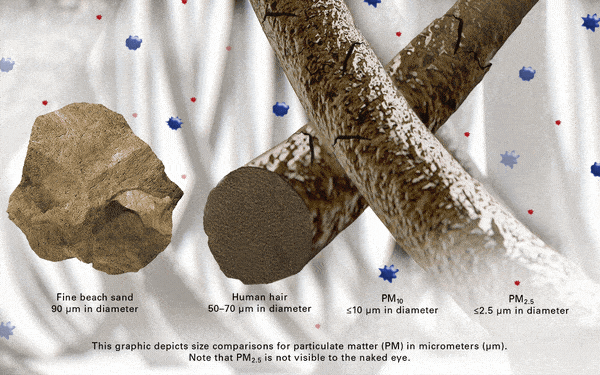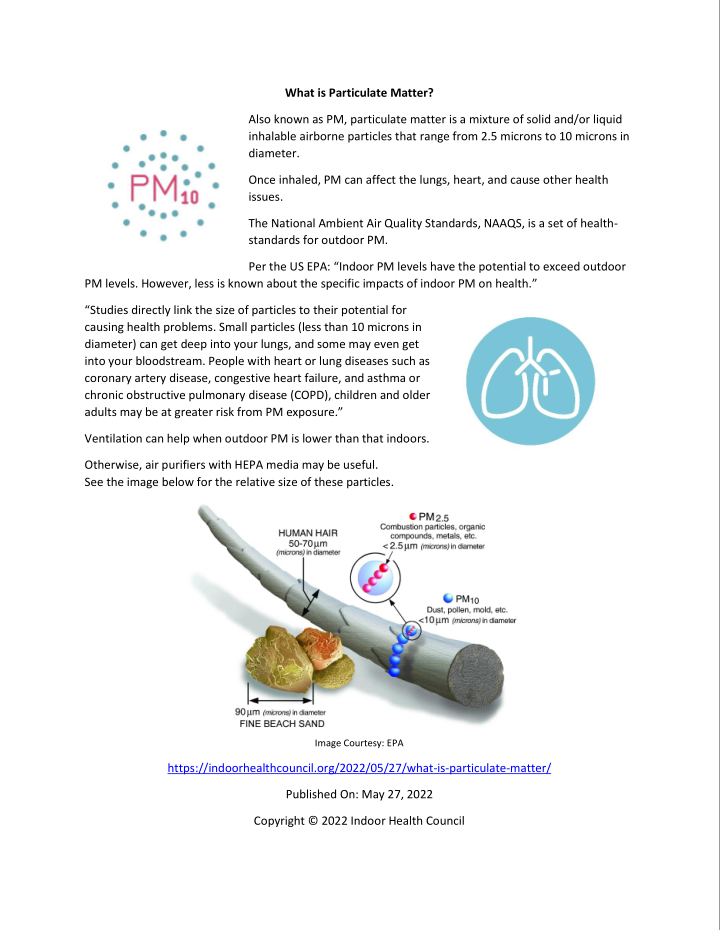What is Particulate Matter?
Also known as PM, particulate matter is a mixture of solid and/or liquid inhalable airborne particles that range from 2.5 microns to 10 microns in diameter.
Once inhaled, PM can affect the lungs, heart, and cause other health issues.
The National Ambient Air Quality Standards, NAAQS, is a set of health-standards for outdoor PM.
Per the US EPA: “Indoor PM levels have the potential to exceed outdoor PM levels. However, less is known about the specific impacts of indoor PM on health.”
“Studies directly link the size of particles to their potential for causing health problems. Small particles (less than 10 microns in diameter) can get deep into your lungs, and some may even get into your bloodstream. People with heart or lung diseases such as coronary artery disease, congestive heart failure, and asthma or chronic obstructive pulmonary disease (COPD), children and older adults may be at greater risk from PM exposure.”
Ventilation can help when outdoor PM is lower than that indoors. Otherwise, air purifiers may be useful.
See the animation for the relative size of these particles.






